
Lisa Grossman is the astronomy writer for Science News. Previously she was a news editor at New Scientist, where she ran the physical sciences section of the magazine for three years. Before that, she spent three years at New Scientist as a reporter, covering space, physics and astronomy. She has a degree in astronomy from Cornell University and a graduate certificate in science writing from UC Santa Cruz. Lisa was a finalist for the AGU David Perlman Award for Excellence in Science Journalism, and received the Institute of Physics/Science and Technology Facilities Council physics writing award and the AAS Solar Physics Division Popular Writing Award. She interned at Science News in 2009-2010.

Trustworthy journalism comes at a price.
Scientists and journalists share a core belief in questioning, observing and verifying to reach the truth. Science News reports on crucial research and discovery across science disciplines. We need your financial support to make it happen – every contribution makes a difference.
All Stories by Lisa Grossman
-
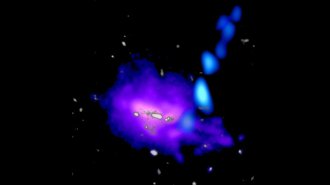 Astronomy
AstronomyA stream of cold gas is unexpectedly feeding the far-off Anthill Galaxy
The finding suggests that early galaxies might have gained more of their bulk from streams of cold gas instead of in violent galaxy collisions.
-
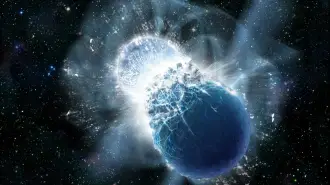 Astronomy
AstronomyA neutron star collision may have emitted a fast radio burst
Astronomers spotted both a fast radio burst and gravitational waves from a cosmic smashup in the same part of the sky and at about the same time.
-
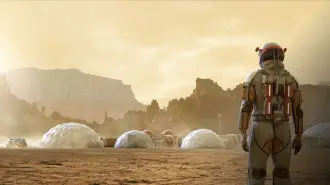 Space
Space‘Off-Earth’ asks how to build a better future in space
As humans prepare to live in space someday, ethics should be as much of guide as science and technology, an astrophysicist argues in a new book.
-
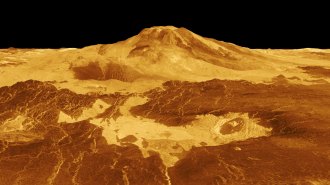 Planetary Science
Planetary ScienceA volcano on Venus was spotted erupting in decades-old images
A new look at old data reveals an eruption on Venus in the 1990s that was probably similar to Hawaii’s Kilauea eruption in 2018.
-
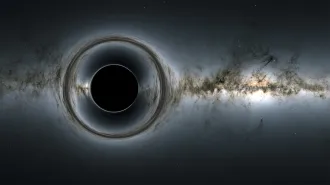 Astronomy
AstronomyA runaway black hole has been spotted fleeing a distant galaxy
A bright streak stretching away from a remote galaxy might be the light from stolen gas and new stars caught in the wake of an escaping black hole.
-
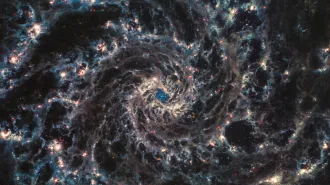 Astronomy
AstronomyNewborn stars sculpt their galaxies in new James Webb telescope images
Dark voids riddle the galaxies’ faces, highlighting previously invisible details about how new stars alter their locales.
-
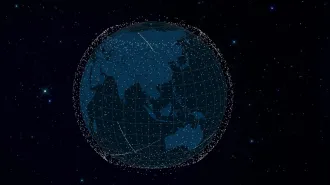 Astronomy
AstronomyHalf of all active satellites are now from SpaceX. Here’s why that may be a problem
Of the roughly 7,300 active satellites in Earth orbit, about 3,600 are part of SpaceX’s growing fleet of Starlink internet satellites.
-
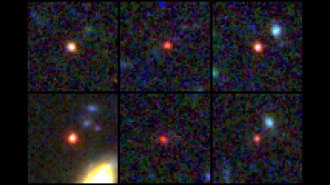 Astronomy
AstronomyThe James Webb telescope found six galaxies that may be too hefty for their age
The galaxies formed in the universe’s first 700 million years and may be up to 100 times more massive than predicted.
-
 Astronomy
AstronomyThe James Webb telescope spotted the earliest known ‘quenched’ galaxy
A galaxy dubbed GS-9209 ceased forming stars more than 12.5 billion years ago after a 200-million-year-long sprint.
-
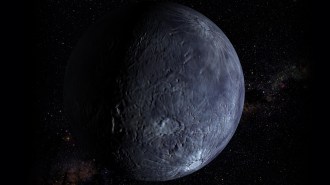 Astronomy
AstronomyThe Kuiper Belt’s dwarf planet Quaoar hosts an impossible ring
Quaoar’s ring lies outside the Roche limit, an imaginary line beyond which rings aren’t thought to be stable.
-
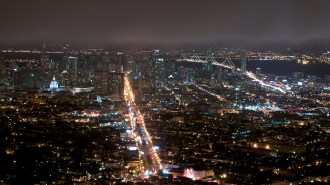 Astronomy
AstronomyNew data show how quickly light pollution is obscuring the night sky
Tens of thousands of observations from citizen scientists spanning a decade show that the night sky is getting about 10 percent brighter every year.
-
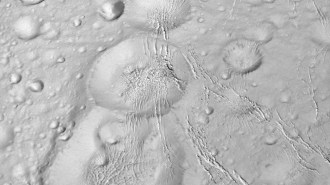 Planetary Science
Planetary ScienceEnceladus is blanketed in a thick layer of snow
Pits on the Saturnian moon reveal the surprising depth of the satellite’s snow, suggesting its plume was more active in the past.